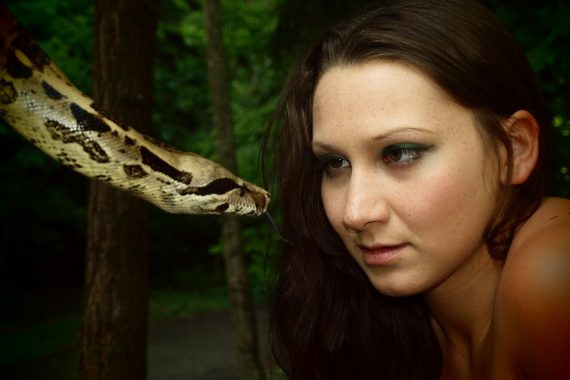Sam Riviera is a frequent and popular contributor to this blog. Many of his posts on loving your neighbors and ministering to the homeless have been among the most popular articles on this blog. Below is another one of his heart-wrenching and insightful posts.
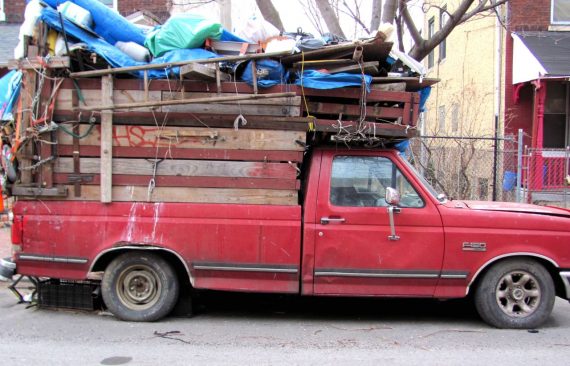
A rusty old pickup truck piled high with an odd assortment of what looked like junk pulled into our gravel driveway one sunny spring afternoon. An older couple dressed like farmers from the back woods crawled out of the cab as I stood there watching.
“We’re your mama’s kin from back in the hills and hollers of West Virginia. Your mama wrote us and told us she’s doin’ poorly, so we come to help out for a spell. You must be her oldest child.”
“Uh, yeah, I’m Sam.”
“Well you can juz call us Annie and Un Kull. Where’s your mama, child?” Annie said. As I would soon learn, Annie did most of the talking and Un Kull didn’t say much.
I showed Annie and Un Kull (I eventually figured out they were saying auntie and uncle, but they pronounced it Annie and Un Kull and believe me, I’m not making fun of them) to mama’s room, a converted garage that my daddy had fixed up for mama when he was alive.
Daddy had died one wet and stormy March night a couple of years earlier. I remember mama and her brother coming home early one evening from the hospital where daddy had lay dying. Usually they came home later, when visiting hours were over. That night they came home right after supper with a hang dog look on their faces.
I was in the cellar working on cleaning up grandma’s box of old wooden butter molds, wooden spoons, and potato mashers. Uncle Bob came down the cellar steps with his hand in his pockets, looking as sad as I’ve ever seen him. I could tell that he didn’t know what to say.
“Your daddy didn’t make it.”
I thought the world ended that night. Even all these years later I can’t help but cry as I write that.
Daddy wasn’t around any more to convert any more garages, to plant his flowers and garden or to help out mama, my little brother and me. So here was Annie and Un Kull, which looked to me like a poor substitute for Daddy. But they were all we had. Or so I thought.
While Annie and Un Kull sat and talked with mama, I returned to the driveway to look over their truck and it’s load of whatever it was they had brought with them.
Someone had cut rectangular holes in the sides of the pickup bed and had wedged two by fours down into the holes. The tops of the two by fours were as high as the top of the cab. Cross pieces of rough one by sixes ran between the two by fours, effectively raising the sides of the bed as high as the top of the cab. Matching wooden swinging gates across the back completed the modification.
Several old upside-down wood chairs, and one upside-down wood rocker were jammed into a pile of burlap bags, boxes and an odd assortment of gardening tools, newspaper-wrapped unknowns and you-name-its that I didn’t recognize.
“Who’s the hillbillies?” My neighbor, Billy, a few years older than me, stood behind me surveying the truck and it’s contents.
“Mama’s relatives from West Virginia.”
“What they doing here?”
“They said they came to help out.”
“How long they staying?”
“Don’t know.”
That was really an insignificant conversation, but I remember it because I remember how embarrassed I was. Billy was too old for me to hang around with and he really never meant much to me but my hillbilly relatives and their rusty, junk-filled old pickup sitting in our driveway somehow terribly embarrassed me when Billy stood there asking me about them.
Later that afternoon Annie and Un Kull unloaded their truck and stashed their things here and there around the house and in the cellar.
“Looks like we brought everything we own,” Annie told me as they unloaded the truck and my brother and I looked on. “Well, almost. All the important things anyway.”
Annie thrust her hand into a burlap bag and produced a cast iron skillet.
“This here skillet’s been seasoned just right. It cooks the best corn pone cakes. You’ll see. Brought some good meal to make ’em with too. Doubt we can find meal as good as that ‘round these parts.”
We had corn pone cakes, spoon bread, and a vast variety of foods we had never heard of before Annie and Un Kull came to stay. Annie cooked, and took care of Mama. Un Kull fixed everything that needed fixing and planted us a huge garden.
One day not long after they arrived Annie pointed out the window box daddy had made for mama. He had built a long shelf outside their bedroom window, about three feet up off the ground, and a long wooden window box for that shelf. When he was alive he planted flowers in the box every spring. Since he had passed, the box had been empty.
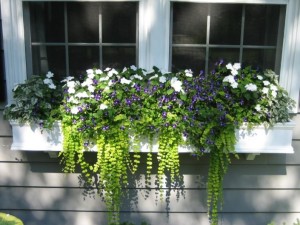 “I brought a bag of my special sweet pea seeds and I think they’d do good in that there wind duh box right outside your mama’s bedroom where she can look out and see ‘em. They’ll cheer her up while she’s gettin’ better.”
“I brought a bag of my special sweet pea seeds and I think they’d do good in that there wind duh box right outside your mama’s bedroom where she can look out and see ‘em. They’ll cheer her up while she’s gettin’ better.”
I wasn’t sure mama would get better. She had inflammation of the pancreas, as the doctor called it. He said we’d have to see if she’d get better. Annie and Un Kull said mama just had a case of consumption, whatever that was, and they were sure she’d get better.
Annie asked for my help planting her sweet pea seeds. I helped and did as she instructed. Annie watered the box every couple of days and fussed over those sweet peas.
As the sweet peas grew, mama started getting better. I don’t know if it was the sweet peas, Annie’s corn pone cakes and country cooking, or what, but mama started getting better. Within a few weeks the sweet peas trailed all the way to the ground, and Annie wove the vines together to make a solid thicket of sweet peas outside mama’s window.
Those sweet peas were the prettiest shade of pink I’ve ever seen. I don’t remember a sweeter smell than those sweet peas in the early evening when mama sat in Annie’s rocker out there by the sweet peas.
“I think I could sit here forever smelling those sweet peas,” mama said. “Especially if I’ve got of plate of something Annie cooked. Made with love. That’s what makes her cooking so good.”
Mama continued to get better that summer. Even her sorrow over daddy’s passing seemed to gradually go away.
Me and little brother and Mama thrived that spring, summer, and fall that Annie and Un Kull spent with us. Some evenings Un Kull got out his banjo and we sang. We sang Gospel and some things that I don’t remember. Stuff mama and Annie and Un Kull knew. I do remember that silly song about “Daddy sang base, mama sang tenor, me and little brother joined right in there.” We didn’t have daddy, but we had Annie and Un Kull and mama, and me and little brother joined right in there.
The leaves on the maples were brilliant reds, oranges and yellows the day Annie and Un Kull told us they’d better be leaving soon so they’d be back to the hills and hollers of West Virginia and get their “little shack ready for winter before the snow flew.”
Mama, little brother, and I stood in the drive and cried the day Annie and Un Kull and their old pickup piled high with all their important things, including Annie’s famous skillet, pulled out and headed for West Virginia. Mama was feeling almost normal. Our house was in good repair and our hearts were glad once again. Annie and Un Kull had worked their magic on us.
It wasn’t much more than a couple of years later that I answered the phone late one evening.
“This here’s Mabel Corlett, neighbor to your Aunt and Uncle back here in West Virginia. I just thought you’d want to know your Aunt and Uncle were killed in a bad accident this afternoon.”
“What happened?” I asked.
“They were on a country road back in the hills, on their way to tend to some sick old lady. Some drunk t-boned ‘em and killed ‘em instantly ‘cordin to the sheriff. The funeral’s Friday if any of you can come.”
Mama and I made the trip. We learned from Annie and Un Kull’s friends and neighbors, which seemed to be everyone around those parts, that Annie and Un Kull took care of everyone around there. And here we thought it was just us.
I don’t think I’ve ever seen more people turn out for a funeral than that one. And the supper at the church afterwards was something I’ll never forget. The cooking was amazing, but I thought Annie’s was better.
“Your aunt and uncle never had a nickel, but they loved on everyone in these parts. The preacher could preach his sermons, but your aunt and uncle lived ‘em out. Those folks were Jesus in person to everyone they knew. I don’t think I ever believed before they came along. They jus’ made it real to me. How were you related, anyway?” Mabel asked.
“Oh, we weren’t,” mama said. They adopted me and my husband a long time ago and told us to call them Annie and Un Kull. They were more like family to us than most of our real relatives.”
“How did you meet them?” Mabel asked.
“They sort of appeared out of nowhere one day.”
“I didn’t know that, mama,” I said. “They weren’t really related to us?”
“No, son. It’s a long story. I tell it to you on the drive back home.”
When we got back home, I walked over to the window box outside mama’s bedroom window. It was barren after the winter. But spring had come and it was time to plant. Time to plant sweet peas and time to start planting what Annie and Un Kull had taught us.
I found my bag of sweet pea seeds. Annie had told me “Let ‘em go to seed and save those seeds, child. You’ll be glad you did. You can plant ‘em yourself. Do it like I showed you and you’ll have all the sweet peas you want.”
Little brother, who couldn’t go to the funeral with mama and me in West Virginia because he couldn’t get off work drove in just as I started digging in the flower box.
“What ‘ya doing, big brother?”
“Planting Annie’s sweet pea seeds. We’re going to have us a crop of pink sweet peas. Mama can sit out here in a few weeks in that rocker we got her for Christmas and smell those sweet peas at the end of the day.”
“You sure you can do that?” little brother asked. “No one could make flowers bloom like Annie.”
“Yeah, I think I can. Annie showed me how to make the flowers bloom. I think you know how too.”
Mama had a thicket of pink sweet peas that summer outside her window. Annie had taught us well. Annie and Un Kull had taught us a lot more than how to make the flowers bloom. They had also taught us how to bloom and how to share a sweet smell with others.
Another day, another time, I’ll tell you more about that summer Annie and Un Kull spent with us. I’ll share some of their stories and some of the stories of the flowers we’ve planted since then that have bloomed and have a sweet smell of their own.


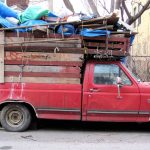
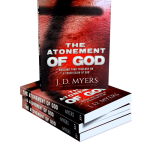
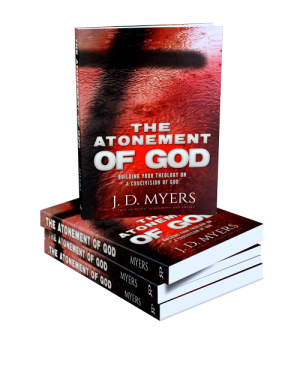
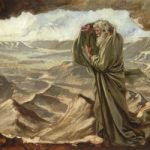
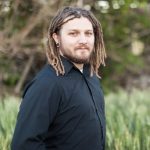 This is a guest post by Paule Patterson.
This is a guest post by Paule Patterson. Slunked under his tattered cloak on a bed of trampled dirt and granite, Elijah was exhausted by his forty-day trek to Horeb and his bout with depression. He was alone. His volcanic Mount Carmel showdown, his draught ending prayer session, and his Flash like outrunning of the chariot have all faded into the foggy clefts of his memory. He was alone. Everyone had failed. If a torrential inferno from the clouds and the relief from the long desperate draught were not enough to turn the hearts of Israel back to their God, what was the point?
Slunked under his tattered cloak on a bed of trampled dirt and granite, Elijah was exhausted by his forty-day trek to Horeb and his bout with depression. He was alone. His volcanic Mount Carmel showdown, his draught ending prayer session, and his Flash like outrunning of the chariot have all faded into the foggy clefts of his memory. He was alone. Everyone had failed. If a torrential inferno from the clouds and the relief from the long desperate draught were not enough to turn the hearts of Israel back to their God, what was the point?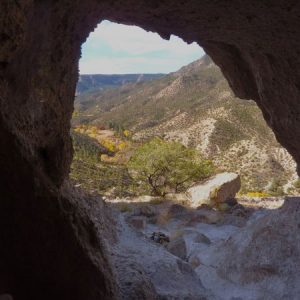 To answer the question, compare this story with that of Moses’ mountain experiences which took place on Mount Horeb and Mount Sinai. These two mountains are closely related to each other in significance and there is debate on whether or not Sinai and Horeb is the same mountain. Moses had seen flames rain down on Mount Sinai, felt the quaking of the mountain (Exodus 19:18) and seen the ruach (wind) push up the seawaters so the people may escape on dry land (Exodus 15:8-10). Moses had felt the agony and rage of seeing God’s people over and over again forget and forsake their Savior and Lord.
To answer the question, compare this story with that of Moses’ mountain experiences which took place on Mount Horeb and Mount Sinai. These two mountains are closely related to each other in significance and there is debate on whether or not Sinai and Horeb is the same mountain. Moses had seen flames rain down on Mount Sinai, felt the quaking of the mountain (Exodus 19:18) and seen the ruach (wind) push up the seawaters so the people may escape on dry land (Exodus 15:8-10). Moses had felt the agony and rage of seeing God’s people over and over again forget and forsake their Savior and Lord.![[#43] Genesis 3:8-10 – Do Not be Afraid](https://redeeminggod.com/wp-content/uploads/2016/06/walking-with-god-150x150.jpg)
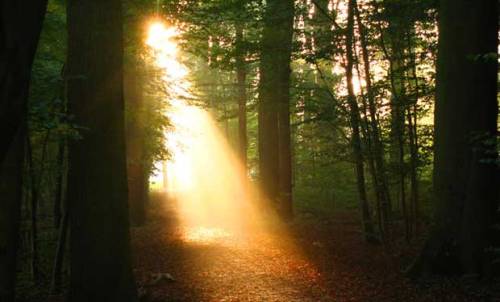



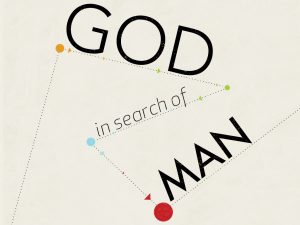 The death of Jesus on the cross was not to reconcile an angry God to sinful and rebellious humanity. No, the death of Jesus on the cross was completely one-sided; it was to reconcile a fearful humanity to a loving God. God was in Jesus reconciling the world to Himself (2 Cor 5:19); not the other way around.
The death of Jesus on the cross was not to reconcile an angry God to sinful and rebellious humanity. No, the death of Jesus on the cross was completely one-sided; it was to reconcile a fearful humanity to a loving God. God was in Jesus reconciling the world to Himself (2 Cor 5:19); not the other way around. ![[#42] Genesis 3:7 – The Greatest Rivalry of All Time](https://redeeminggod.com/wp-content/uploads/2016/06/adam-eve-fresco-150x150.jpg)
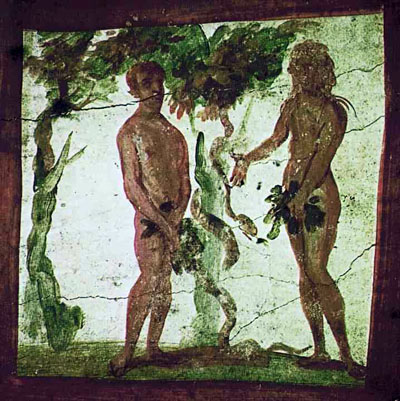 Genesis 3:6-7 are the central two verses of Genesis chapters 2–3. In a previous episode, we looked at Genesis 3:6, and learned a foundational truth about humanity. This episode reveals another foundational truth from Genesis 3:7.
Genesis 3:6-7 are the central two verses of Genesis chapters 2–3. In a previous episode, we looked at Genesis 3:6, and learned a foundational truth about humanity. This episode reveals another foundational truth from Genesis 3:7.


![[#41] Genesis 3:6 – Drawn by Desire](https://redeeminggod.com/wp-content/uploads/2016/06/Eve-eating-fruit-Genesis-3-6-150x150.jpg)
 This episode of the One Verse Podcasts look at the third foundational and revolutionary truth from Genesis 2-3. We see it in Genesis 3:6.
This episode of the One Verse Podcasts look at the third foundational and revolutionary truth from Genesis 2-3. We see it in Genesis 3:6.
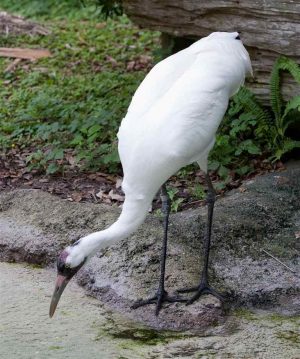 “And where is heaven?” asked the crane.
“And where is heaven?” asked the crane.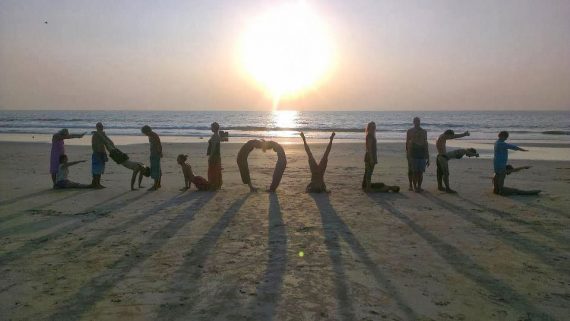
![[#40] Genesis 3:1-5 – Eve and the Serpent](https://redeeminggod.com/wp-content/uploads/2016/06/The_Serpent_eve-150x150.jpg)
